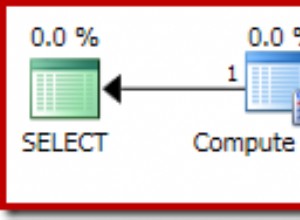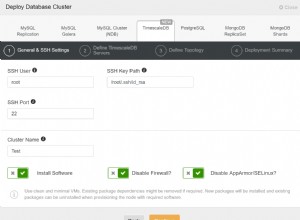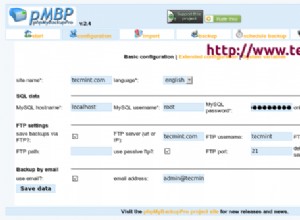Trzeci argument jsonb_set() powinien być jsonb rodzaj. Problem polega na rzuceniu ciągu tekstowego na ciąg jsonb, potrzebujesz ciągu w podwójnych cudzysłowach. Możesz użyć concat() lub format() :
update animal
set info =
jsonb_set(info, '{location}', concat('"', lower(info->>'location'), '"')::jsonb, true)
-- jsonb_set(info, '{location}', format('"%s"', lower(info->>'location'))::jsonb, true)
where id='49493'
returning *;
id | info
-------+------------------------------------------------------------------
49493 | {"habit1": "fly", "habit2": "dive", "location": "sonoma narite"}
(1 row)
W Postgresie 9.4 powinieneś rozpakować kolumnę json za pomocą jsonb_each_text(), agregować klucze i wartości modyfikując odpowiednią wartość w locie, a na koniec zbudować obiekt json:
update animal a
set info = u.info
from (
select id, json_object(
array_agg(key),
array_agg(
case key when 'location' then lower(value)
else value end))::jsonb as info
from animal,
lateral jsonb_each_text(info)
group by 1
) u
where u.id = a.id
and a.id = 49493;
Jeśli potrafisz tworzyć funkcje, to rozwiązanie może być przyjemniejsze:
create or replace function update_info(info jsonb)
returns jsonb language sql as $$
select json_object(
array_agg(key),
array_agg(
case key when 'location' then lower(value)
else value end))::jsonb
from jsonb_each_text(info)
$$
update animal
set info = update_info(info)
where id = 49493;




